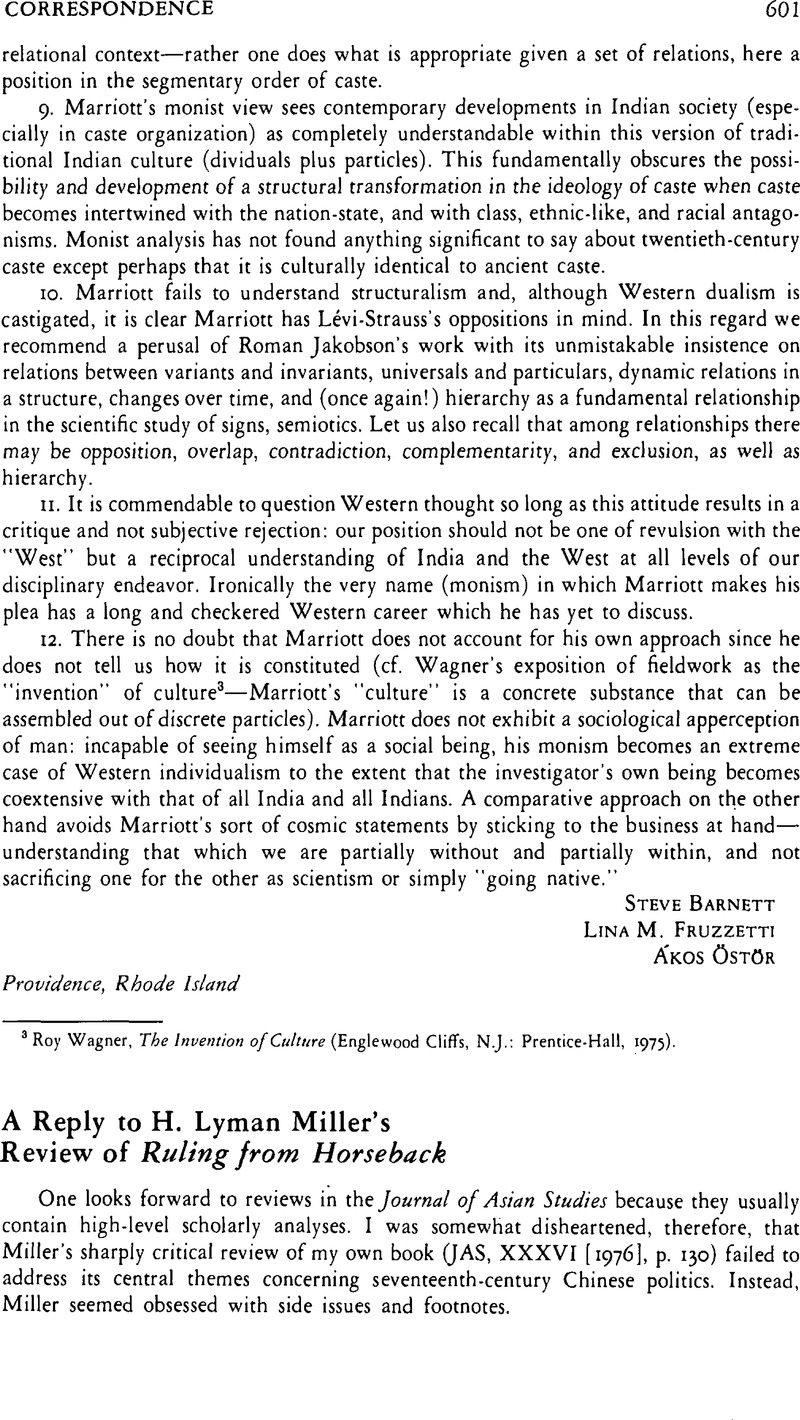No CrossRef data available.
Article contents
A Reply to H. Lyman Miller's Review of Ruling from Horseback
Published online by Cambridge University Press: 23 March 2011
Abstract

- Type
- Correspondence
- Information
- Copyright
- Copyright © Association for Asian Studies, Inc. 1977
References
1 My comment on the pronoun chen must be taken in the context of the more general arguments concerning the advent of an Imperial faction (I referred readers to chapter 8, where this matter is discussed). The point is that, during the 1667–69 period, some edicts used the imperial pronoun (my guess is that these were drafted by those in the faction around K'ang-hsi) and some did not use this pronoun (my assumption is that these were drafted by those in the Oboi faction). In any case, it's not a major point, and that is why I put it in a footnote.
2 I am well aware, as is every serious student of the Ch'ing period, that the Ta-Ch'ing shih-lu is an imperfect historical source and must be used with care and caution. I am surprised that Miller would imply such a lack of awareness, particularly since I devoted a substantial portion of the book to the forgery of the Shun-chih Emperor's Will in the shih-lu (see pp. 1, 50–63, and appendix I).
3 The fact that members of both Yellow banners suffered under the Dorgon regency is plainly stated on pp. 39 and 43. I differ with Miller about Soni gaining much from the banner relocation affair be cause Soni's Plain Yellow banner did not receive land, and Soni himself was probably too ill to involve himself in this episode. Kessler agrees with my interpretation of this issue; see Kessler, op. cit., p. 46.
4 The standard English-language books that cover the K'ang-hsi reign, including Eminem Chinese of the Ch'ing Period and Spence's Emperor of China, makt it clear that his reign was anything but tranquil.




